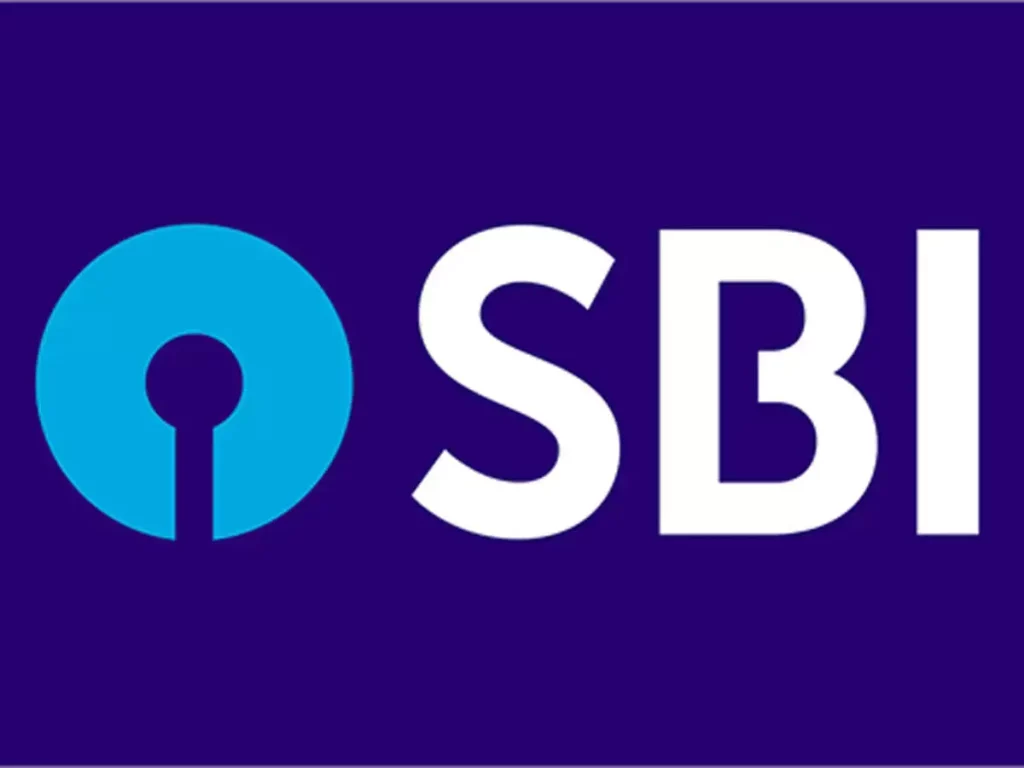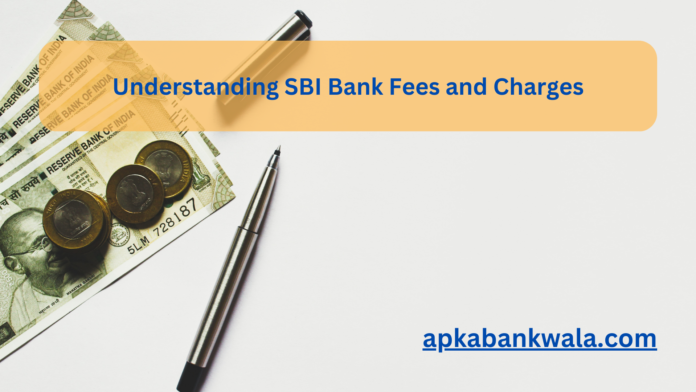As a customer of the State Bank of India (SBI), you must know the various fees and charges from your bank account. Knowing what fees and expenses can help you manage your finances better and avoid any unpleasant surprises, whether you have a savings account, a current account, or a credit card.
This article will cover all the fees and charges associated with SBI Bank accounts, including how they are calculated, how to avoid or reduce them, and much more.

Types of SBI Bank account fees and charges
SBI Bank account fees and charges can be broadly categorized into the following types:
- Account opening fees: SBI Bank charges a nominal fee for opening a new account. This fee varies depending on the type of account you open.
- Account maintenance fees: SBI Bank charges a monthly fee for maintaining your account. The fee varies based on the type of account and the minimum balance requirements.
- Minimum balance charges: SBI Bank charges a penalty fee if your account balance falls below the minimum balance required. The minimum balance requirements vary based on the type of account.
- ATM transaction fees: SBI Bank charges a fee for every transaction done at non-SBI ATMs. However, SBI customers can use SBI ATMs for free.
- Checkbook charges: SBI Bank charges a fee for issuing a new checkbook or additional leaves.
- Stop payment charges: SBI Bank charges a fee for stopping a cheque payment.
- Debit card fees: SBI Bank charges a fee for issuing a new debit card or renewing an existing one.
- Annual fees for credit cards: SBI Bank charges a yearly fee for using its credit cards. The fee varies based on the type of card.
- Late payment charges for credit cards: SBI Bank charges a fee if you wait to pay your bills on time.
- Cash handling charges for deposits and withdrawals: SBI Bank charges a fee for cash deposits and withdrawals above a specific limit.
- Electronic fund transfer fees: SBI Bank charges a fee for fund transfers through NEFT, RTGS, and IMPS.
- SMS alerts charges: SBI Bank charges a fee for sending SMS alerts related to your account.
How SBI Bank determines fees and charges

A. How SBI Bank determines fees and charges:
- SBI Bank determines its fees and charges based on various factors such as the type of account, transaction amount, frequency of transactions, location, occupation, and age.
- SBI Bank uses a fixed or percentage-based method to calculate the fees and charges associated with its accounts.
B. Factors affecting fees and charges:
- The fees and charges for SBI Bank accounts are affected by factors such as the account holder’s age, occupation, location, and other personal details.
- The frequency and amount of transactions and the type of account also affect the fees and charges.
C. Calculation of fees and charges:
- SBI Bank calculates the fees and charges associated with its accounts using a fixed or percentage-based method.
- The calculation of fees and charges is based on various factors such as the type of account, transaction amount, frequency of transactions, and other personal details.
D. Different fees and charges for different account types:
- Other account types come with other fees and charges.
- For example, a savings account will have different fees and charges than a current account.
- It’s important to know the different fees and charges associated with each account type.
E. Waiving of fees and charges:
- SBI Bank may waive some fees and charges under certain circumstances.
- For instance, the bank may waive fees if the account holder maintains a high minimum balance or has a long-standing relationship with the bank.
- Knowing the conditions under which fees and charges may be waived is essential to take advantage of these opportunities.
Tips to avoid or reduce SBI Bank fees and charges
The following outline provides tips to avoid or reduce SBI Bank fees and charges:
A. Maintain minimum balance:
- SBI Bank charges its customers if they fail to maintain a minimum balance in their accounts.
- The minimum balance requirement varies depending on the account type and the branch’s location.
- Maintaining a high minimum balance can help avoid these fees and charges.
B. Use the SBI Bank ATM network for cash withdrawals:
- SBI Bank allows its customers to withdraw money from other banks’ ATMs but charges fees for such transactions.
- Using SBI Bank’s ATM network for cash withdrawals can help avoid these fees.
C. Avoid cheque bounces:
- SBI Bank charges its customers for bounced cheques.
- Avoiding bounced cheques by ensuring sufficient balance in the account can help avoid these fees.
D. Opt for e-statements instead of physical statements:
- SBI Bank charges a fee for providing physical account statements.
- Opting for e-statements instead of physical statements can help avoid these fees.
E. Use SBI Bank’s mobile and internet banking services:
- SBI Bank provides mobile and internet banking services to its customers, which can help avoid fees and charges associated with physical banking.
- These services for account management, bill payments, and fund transfers can avoid fees and charges associated with physical banking.
By following these tips, SBI Bank customers can avoid or reduce fees and charges associated with their accounts, which can help them save money and manage their finances more effectively.
Because Knowledge is the Best Investment – Keep Reading –
- Understanding SBI Bank Fees and Charges: A Comprehensive Guide
- SBI HRMS IRJ Online Portal: How to Use SBI HRMS Online Portal and App for All Your HR Needs
- SBI FASTag: Revolutionizing Your Journey
- Take Control of Your Business Finances: SBI Corporate Online Banking Explained
- SBI Current Account: What Is It and How to Open One
- What Is Video KYC? Know More for Different Banks (SBI, ICICI, HDFC)
- Unlocking Financial Ease: Linking Your PAN Card with SBI Bank Account
- How to Generate SBI ATM PIN: A Step-by-Step Guide
- Unleashing the Features and Benefits of the Bank of America EDD Card
- Must-Know Banking Terms: 36 Terms You Should Know for Sure
- SBI Fixed Deposit (FD) Review
- What Is UPI? How to Activate UPI
- SBI Corporate Saral
- Unlock the Benefits: The Ultimate Guide to Opening an SBI Bank Account
- Demystifying SBI Vyapar: Your Comprehensive Guide to Small Business Financing
- Maximizing Benefits: Comparing SBI Debit Cards to Find the Perfect Fit
- SBI Corporate Banking: Everything You Need to Know
- Best Schemes of SBI
- SBI Full Form
- What Is SBI Recurring Deposit (RD)?
- How Good Is SBI Mutual Fund?
Final Thoughts
The following outline summarizes the key points and provides final thoughts on managing SBI Bank fees and charges, as well as encourages readers to take action to avoid unnecessary fees and charges:
A. Summary of key points:
- SBI Bank charges fees and penalties for various banking services and transactions, including account maintenance, ATM transactions, cheque bounces, etc.
- The bank determines fees and charges based on various factors, such as account type, location, and banking services used.
- Customers can reduce or avoid fees and charges by maintaining a minimum balance, using SBI Bank’s ATM network, avoiding cheque bounces, opting for e-statements, and using mobile and internet banking services.
- Understanding SBI Bank fees and charges and taking appropriate steps to avoid them can help customers save money and manage their finances more effectively.
B. Final thoughts on managing SBI Bank fees and charges:
- Managing fees and charges are an essential aspect of personal finance. Customers should know the fees and charges associated with their SBI Bank accounts.
- Customers can use various tools and strategies to reduce or avoid fees and charges, such as maintaining a minimum balance, using digital banking services, and avoiding cheque bounces.
- It is important to review account statements regularly to identify any unnecessary fees and charges and take action to avoid them in the future.
C. Encouragement to take action to avoid unnecessary fees and charges:
- SBI Bank customers should take action to understand the fees and charges associated with their accounts and take appropriate steps to reduce or avoid them.
- By following the tips outlined in this article and being mindful of banking activities, customers can save money and manage their finances more effectively.
- Taking action to avoid unnecessary fees and charges can also help customers maintain a good credit score and financial standing in the long term.


